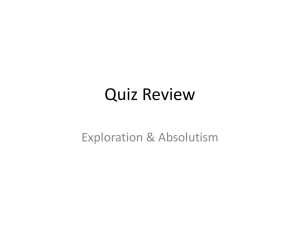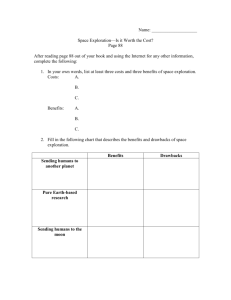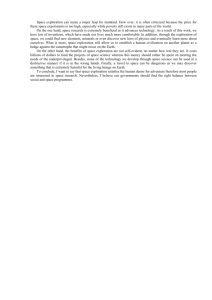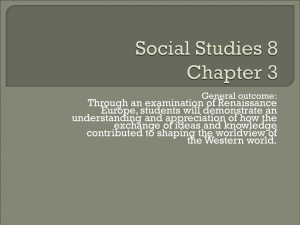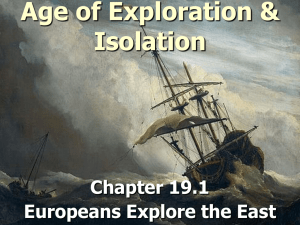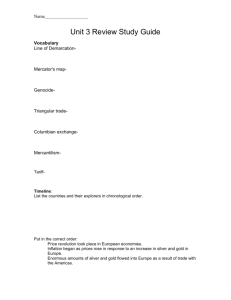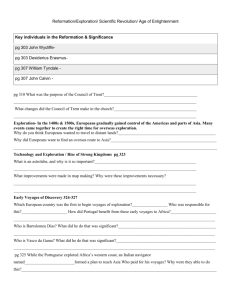(chapter 3)
advertisement
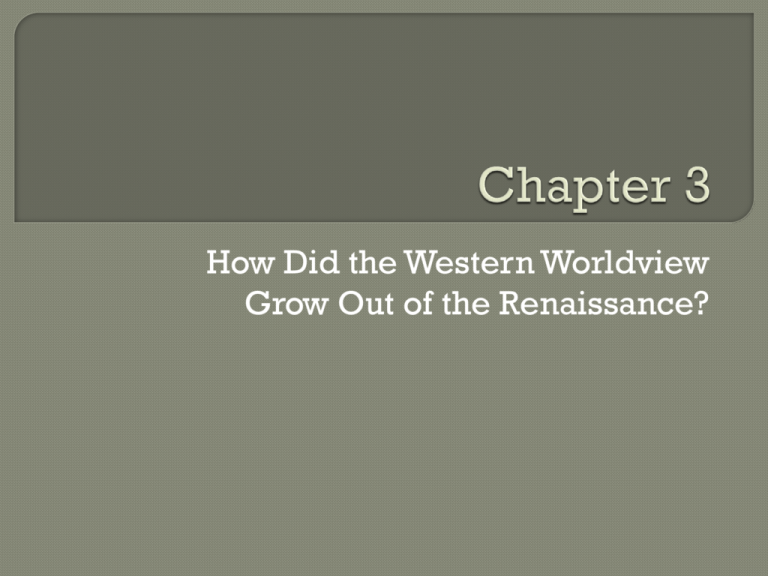
How Did the Western Worldview Grow Out of the Renaissance? Two views of religion existed in the Western worldview of the time. • One believed that individuals should follow the rules, rituals and teachings of the Roman Catholic Church • One believed that individuals should question and respond to the Bible personally. • Humanists began to question the behaviour of some of the popes and the clergy. • They wanted to see reforms in religion but did not want to break from the Catholic Church. • This desire to reform became the basis for the Protestant Reformation The 16th-century movement to reform the doctrines and practices of the Roman Catholic Church which resulted in the formation of Protestant churches. They did not originally want to separate from the Catholic Church however the disagreements lead to new ideas and religious wars. 1483-1546 German priest and one of the most important reformers. Wrote a pamphlet that listed 95 reforms he felt were necessary He believed that • Following the rituals of the Church was not enough to get into heaven • Individuals should seek personal religious understanding • Individuals should not pay the church for forgiveness • His books were burned by the Catholic Church but those who agreed with him came together to form the Protestant religion. Members of any Christian Churches that are not Roman Catholic Religion became more individualized and influenced the formation of new churches and the Roman Catholic Church itself. The Protestant Reformation is an example of the rapid flow of ideas across Europe. The Catholics and Protestants used their hostilities for political purposes • Often at war • Lead people to follow different leaders • The fight for religion created a sense of common identity among people and influenced the formation of countries. The idea of a nation began to develop in the Renaissance and became part of the way we see the world. By the end of the Renaissance, small political units joined together to form larger states or countries. They formed them for the following reasons: • Societies became more urban • Citizens developed new identities • Gunpowder was introduced to China which changed warfare. Monarch hired mercenaries (soldiers mostly) who took control of lands to have increasingly larger states. The printing press and use of local languages helped create national identities Exploration of new lands also led to a sense of greater national identity. Social Systems • • • • • People saw themselves as citizens of a country Exploration = feelings of optimism Citizens more free to move out of their class Some public services began to be provided Growth of modern states put them in competition with the church Political and Economic Systems • Rulers headed central governments • Government policies were set up to ensure political and economic • • • • independence Permanent armies established Resources were provided for large projects Centralized laws put in place National economic policies such as trade and tax rules controlled trade and business Culture • Common languages unified the citizens • More literacy = more knowledge of history • P. 97 During the Renaissance, the feudal system declined and larger centralized states came under the control of monarchs who wanted the wealth that came from trade with the East. This competition created the need for new trade routes. • This as well as new geographic knowledge and sailing technologies paved the way for the Age of Exploration (also called the Age of Discovery) • Began in the early 15th century • The desire to expand their influence became a major part of their worldview • European expansionism would spread the Western Worldview all over the world. A government policy encouraging territorial or economic expansion to other countries, often by force. Factors Affecting Expansionism • The need for new trade routes Trade on the Silk Road became limited and no longer met the demands for good in Europe Ways of doing business were changing Merchants would fund trading ships to bring back goods As focus on trade increased, merchants wanted to have their own control over trade, this lead to travel and exploration When the Turks were conquered in 1453, the flow of goods from Asia was nearly halted resulting in the need for finding new direct sea routes to India and China. New ideas and knowledge • Geography people believed the world was round and flat Some believed it was round but with one ocean (Ptolemy) Scientist such as Copernicus seemed to confirm that the earth was spherical therefore travelers were not afraid to explore due to fear of falling off the earth • Interest in learning more about the world Humanism brought interest in geography Writers promoted the idea that people should see as much of the world as possible Advances in cartology meant they could travel further The astrolabe (device used to navigate with the stars and the printing press increased travel due to the distribution of maps) Portugal, France, Spain and England became more and more powerful They became the leading players in the Age of Exploration for the following reasons: • Each had an Atlantic coastline • Monarchs financed overseas exploration • New ship designs allowed sailors to travel further • New values favouring travel lead to consumerism Focusing on collecting and using material goods or products. Portugal • Portuguese sailors headed south and east along the west coast of Africa to find a new route to China • So successful in finding new trade routes that Lisbon became Europe’s new trade capital. • Between 1487 and 1497, Batholomew Diaz and Da Gama helped establish a sea route to the east establishing wealth for Portugal Spain • They were jealous of Portugal’s wealth and also sent sailors to the east • In an attempt to gain a trade route unkown to the Portuguese, they travelled in the opposite direction, unaware that the two continents of the America’s stood in the way. • Christopher Columbus In 1492, he set sail from Spain and after two months at sea he spotted and island he thought was Japan which was in fact an island in the Caribbean He remained convinced that he had sailed all the way to Asia but explorers would later prove that he found land unknown to Europeans Ferdinand Magellan Explored the sea coast of South America in 1519 Discovered and named the Pacific Ocean One of his five ships made it to Asia and became the first to circumnavigate the globe. England • Slower to fund exploration, more interested in trade within Europe • One of the few voyages funded came in 1497 when John Cabot reached North America • Under the reign of Queen Elizabeth I at the end of the 16th century came the interest in exploration. • By the beginning of the 17th century, England established more colonies along the North Atlantic Coast and in the West Indies than any other power. • France After Spain and Portugal found wealth in the Americas, France decided to embark on exploration In 1534, Jacques Cartier sailed to the New World and explored he St. Lawrence river. During the Age of Discovery, European nations began to recognize the wealth the new lands and its people could provide Over time, some countries such as Spain and Britain had built so many colonies that they had their own empires. This would lead to imperialism • The policy of a country or empire to extend its authority or domination by political, economic or military means. • The view of these countries was the need to further the interest of thier nation and therefore became very competitive for land. • P.109 The European View of the Rest of the World. • WE ARE THE BEST!!!!! WE ARE SUPERIOR!!!! • Europe’s imperialist nations thought that they had the right to control colonies based on a belief of cultural and political superiority. • Indigenous peoples were not generally viewed as equals • They therefore practiced some degree of ethnocentrism A belief that one’s own race or culture is superior to others Examples of ethnocentric views The Aztec and Inca of the Americas has bigger cities and more sophisticated societies but were still treated as inferiors Chinese civilizations who were thousands of years older were thought to be barbarians Traditional governments were replaced with European systems Indigenous peoples were displaced or used for slave labour African civilizations almost wiped out through slave trade Christianity the only true religion Exploration lead to the redistribution of plants and animal around the world. Europeans transformed the Americas with the introduction of their metals, the wheel, work animals, as well as their firearms and technologies The Americas introduced things such as rubber, canoes, snowshoes, toboggans and chewing gum. The biggest exchange and impact came with the spread of European diseases Smallpox, measles and tuberculosis were especially destructive It is estimated that between 75% and 90% of the Aboriginal population died due to exposure to European diseases. In some cases, whole cultures were destroyed because of their weakened state. P.112 Ideas and Knowledge • Exploration soon made the Europeans realize that there were entire civilizations different then their own • Even though they were generally ethnocentric, scholars and leaders were impressed by the North American indigenous peoples’ way of life • They began to think about the inequalities in their own system of government • The idea of personal freedom became part of the European Worldview • Individual choice and choice of religion became an important part of life for the Europeans Economic Systems • Contrary to what might be thought, the economy in most European countries ended up in turmoil as a result of the wealth gained from their colonies. • As more and more gold and silver was brought to Europe from their colonies its buying power was reduced. • This resulted in inflation An increase in prices and a decrease in the purchasing power of money P.120
